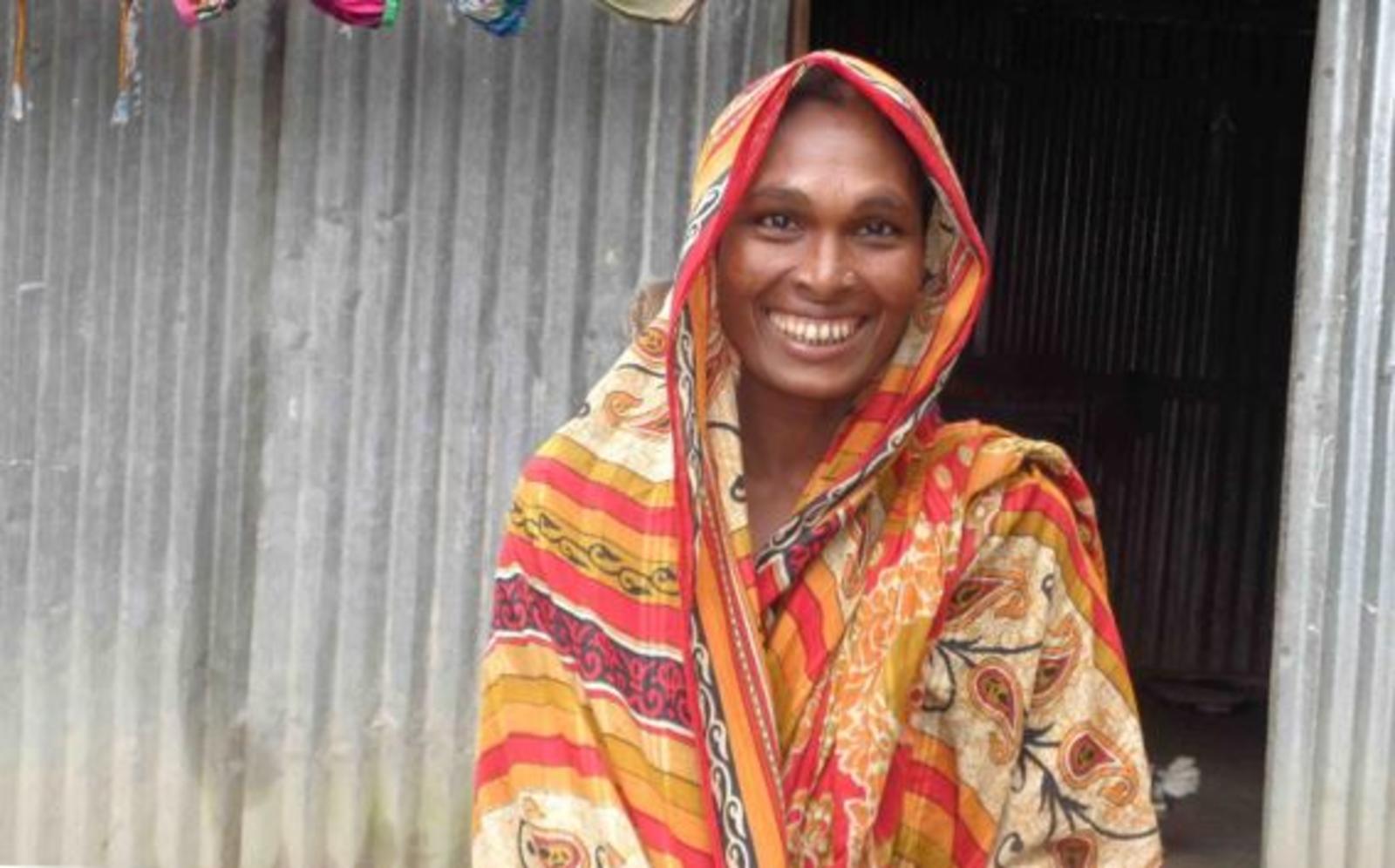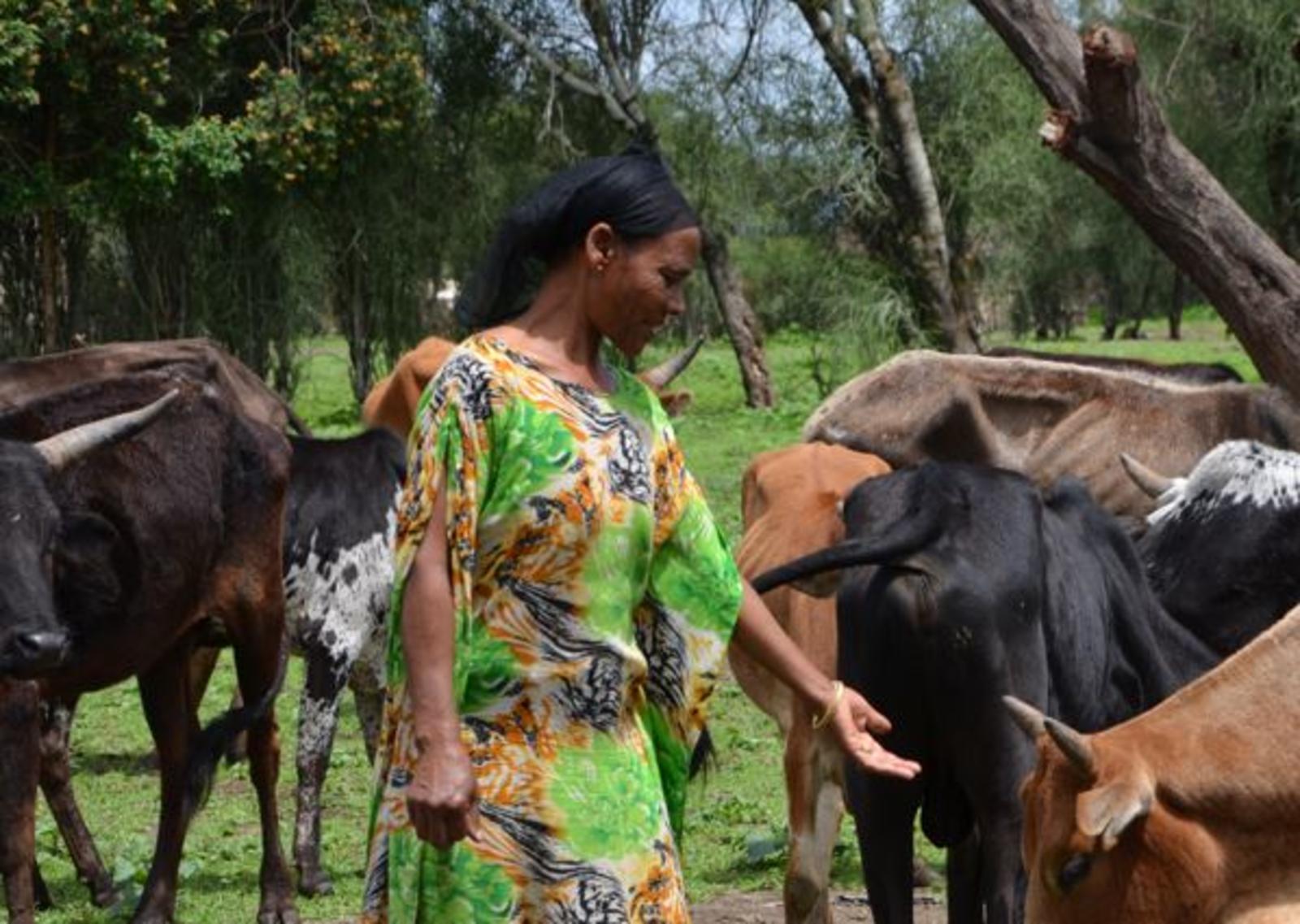April 4, 2017
The struggle for Gender Equality through five women in five SDG Fund programs
Women’s empowerment and gender equality are fundamental to increasing sustainable development. Nevertheless, large obstacles still exist and hinder these objectives: from violence and sexual exploitation to the unfair distribution of unpaid work or discrimination in public decision making. Putting an end to all forms of discrimination against women and children is not only a basic human right, but also has a ripple effect in other areas of development.
Coinciding with the celebration of the 61st meeting of the Commission on the Status of Women in New York, five women from different countries shared their unique perspective and stories. These women all participate in programs as part of the SDG Fund, a UN inter-agency fund. Their –struggles illustrate some of the everyday challenges that many women face trying to achieve equality.
Opportunity for the poorest of the poor: Anowara, Bangladesh

In Bangladesh, only one in three rural women participate in the work force, compared to four out of five men. This harsh reality has tremendous ramifications on women already from vulnerable households often led by single, abandoned, widowed, or divorced women. With this in mind, the SDG Fund is working to create provide income and employment opportunities for women from impoverished households and at the same time improve access to social protection services. One of these women is Anowara, a domestic worker since childhood, who was forced from her job in Dhaka at age 15 to return to uncertain prospects in her home city. After facing years of abuse by her husband, Anowara like many women continued to struggle to make ends meet and often only through the generosity of her neighbors. As part of a SDG Fund, Anowara is getting her life back on track. Anowara is now working in a special maintenance position with the local public works administration. With basic skills training and support from the program, she is now able to save her wages, open a bank account, and begin planning for her future. Anowara will use her savings to buy livestock and a plot of land where she hopes to plan for a more secure future and eventually build a house. The SDGF Fund program in Bangladesh helps women like Anowara gain their independence and better understand their rights, including working closely with the government to create the municipal training program, known as SWAPNO. “When I look at the Dudhkumar River (the Milk River that flows through the village), all of the water used to look like tears to me, but this program has helped me escape my frustration and work to build a more dignified life for me and my daughter,” said Anowara. Anowara is just one of many success stories, as more than 2,500 women have participated in the SWAPNO program.
Agriculture Extension Services from a gender perspective: Kedija Wako, Ethiopia

In Ethiopia, rural women often face unfair access to basic economic opportunities, especially in land ownership and as part of the overall justice system. In fact, women farmers represent 75% of the farming workforce, but possess a mere 18% of the farmland in the country. To expand the opportunities for women, the SDG Fund is providing an integrated approach to generate agriculture extension services for women farmers. The program is designed to generate greater financial inclusion by supporting cooperatives that promote women-owned livestock businesses. By offering basic financial literacy and skills training, the program is working to expand the much-needed participation of rural women in production associations, financial cooperatives, and syndicates. The goal is to change the policies to adapt to the needs of rural women, especially around agriculture training and support for extension services. An estimated 2,600 women are currently participating in the program. In addition, over 250 public employees from Oromia and Afar, two of the poorest regions are also being trained to incorporate gender in community efforts. For Kedija Wako of Oromia, the benefits of the program are enormous, “Thanks to the credit and training program, I was able to purchase goats and other livestock. I also learned the necessary techniques needed to fatten them up for sale so I will eventually have enough income to send my kids to school.”
Business Associations: Fatin Anani, Palestine
Fatin Anani and Asmahan Bargith © SDG Fund / Mohamed Badarne
The SDG Fund Joint Program in Palestine helps support businesses which are led by women. The program centers around fostering women owned SME’s and cooperatives. In a time where only 5% of the workforce in Palestine is employed in women-owned enterprises, the program helps provides the skills needed to educate women on bringing their products to market. Uniquely, many of the businesses are linked to cultural and agricultural products which are often difficult to market. The program helps women bring these products to a commercial market and ensure they are ready for export. Additionally, the program works to support local production and establish incentives for women’s cooperatives. A large part of the program’s is to help foster the growth of local business associations. For Fatin Anani, a local entrepreneur, she discovered the collective power of working with an association, “It used to be that each of us had our own separate businesses. Now, we have established an alliance for our businesses --which makes us more powerful. We can now make decisions for ourselves and our products. The empowerment from this kind of an association is a form of liberty. We hope to share this feeling with other women and continue to support fair trade products which are produced by women only enterprises.”
Indigenous women’s empowerment and the revitalization of their cultures: Xiomara Arriaga, Honduras
In Honduras, the SDG Fund helps young women develop micro-businesses and generate income linked to the revitalization of the local Lenca culture . Xiomara Arriaga is one of the many beneficiaries of the program who has benefited from the program and has established her own small craft business. She now has a workshop that utilizes traditional Lenca handiwork and weaving to make and sell indigenous products bags, scarves, and necklaces. “We never had a space to support local production and showcase our culture, not as artists, or as women. Now, I attend meetings and participate in educational topics that as a young person are important to my future.” Having more ownership in her work has given Xiomara confidence to grow her business and the financial tools and ability to provide for her family. Her earnings will allow her to take care of her children and use the remaining capital to continue to invest and expand her business.
“Just” Justice for men and women: Djiblo Beatrice, Ivory Coast
The SDG Fund in the Republic of Côte d'Ivoire collaborates with the Association of Female Lawyers to offer legal services for women and build support and foster greater confidence in the legal system and its services. More than 13,000 people have accessed free legal services which are offered to protect their rights and improve their economic situations. This has been the case for Djiblo Beatrice, a woman whose husband of 22 years filed for divorce and tried to take all their assets. Through the support of her pro-bono lawyer, Djiblo was steered through a complex divorce process and the distribution of what were to be shared assets. She now feels more empowered and is managing her own business and is able to employ other women from the local community. “The legal assistance center helped me with advice for my personal problems and guide me my rights as a home-owner and the legal representative I needed,” said Djiblo.
Translation by Loni Thorson






